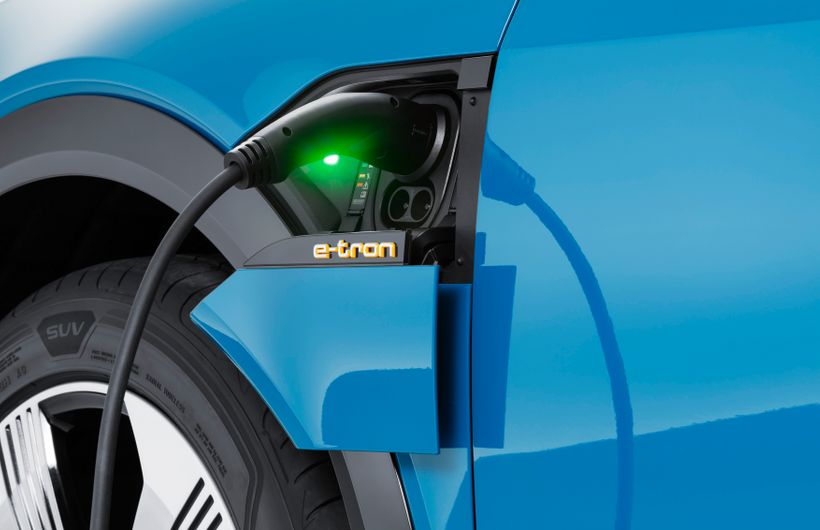Take a close look at the two Audis above. Both are brand new, nicely equipped SUVs with the quattro four-wheel-drive system and all of the gadgets you could ever need. So, which would you choose as a company car if you want to save money?
If you went for the car on right, you’ve just cost yourself £12,190 in tax every year – that’s enough for a rather luxurious holiday, or a brand-new city car. Every year. If you get fuel provided by your employer too, add another £3,626 to the bill.
The difference is that the car on the left is an Audi e-tron, a 100% electric car, while the car on the right is an Audi Q7 3.0 diesel. The government won’t charge you any benefit-in-kind for the electric car, but the Q7 is taxed at a rate of 37% of its list price. That works out at £12,190 if you are a 40% taxpayer, which is taken straight out of your pay packet at a rate of more than £1,000 every month.
This rule is one of the reasons there’s suddenly quite a lot of interest in electric cars. As of April 2020, there has been zero percent benefit-in-kind (or BIK) chargeable on fully electric cars, along with reduced rates for plug-in-hybrids. These figures are applicable in England and Wales, with similar rates in Scotland.
The savings aren’t quite as dramatic for smaller cars in the Audi range, but are still not to be sniffed at. For example, an Audi SQ5 is substantially cheaper to buy than the e-tron at £53,000 versus £73,000, but you’ll end up paying £7,868 in tax for the privilege of driving it – plus the extra for fuel supplied too. Electric car drivers can charge their cars at work with no tax liability.
- Did you know your electric car can actually earn you money?
- Where does renewable energy come from?
- Here are the answers for the bloke down the pub who says electric cars aren’t green
 The Audi e-tron is the car to choose if you want to save thousands in tax
The Audi e-tron is the car to choose if you want to save thousands in tax 











